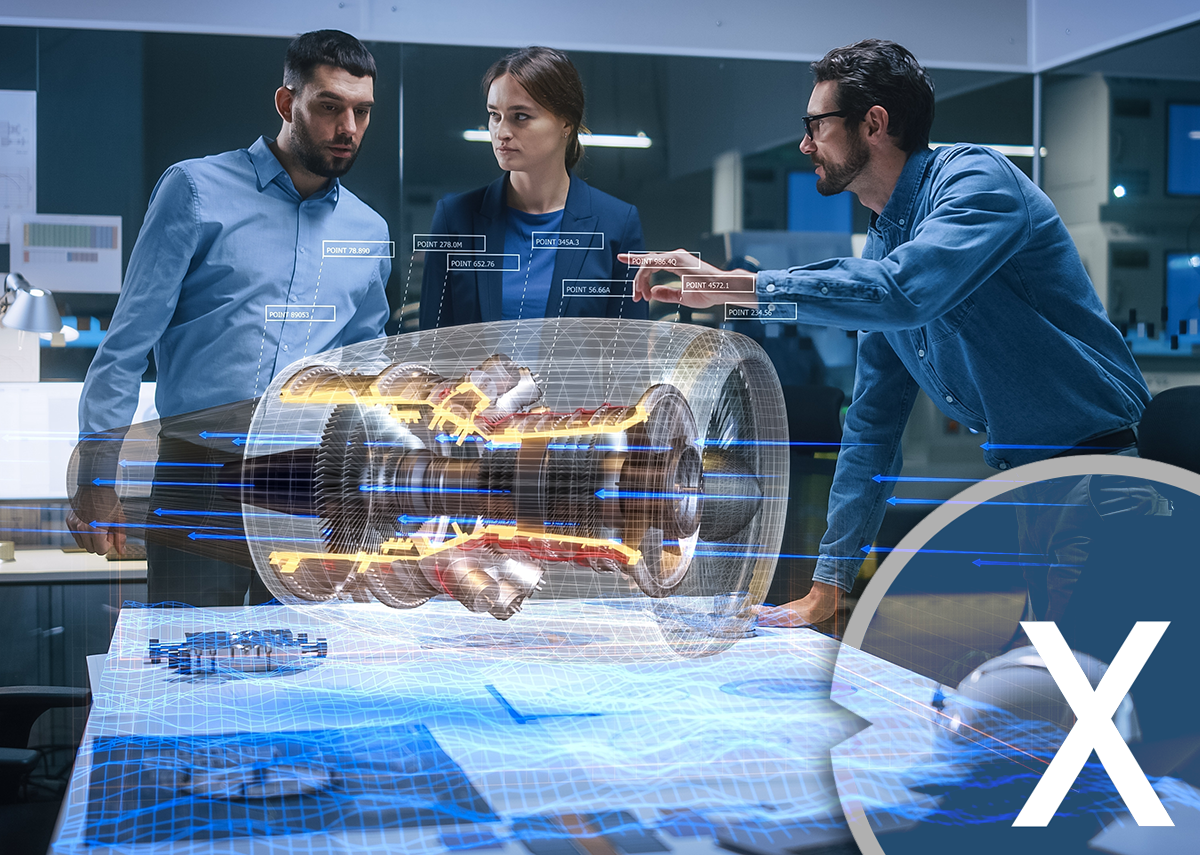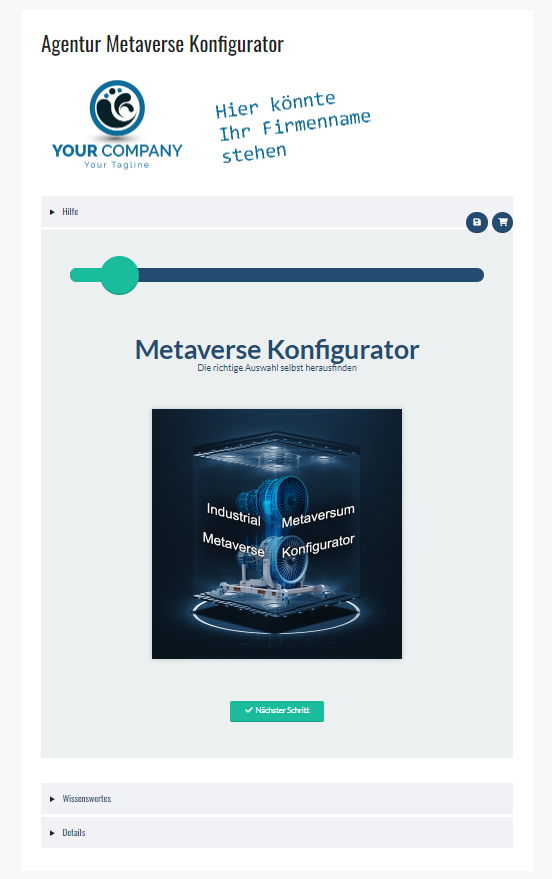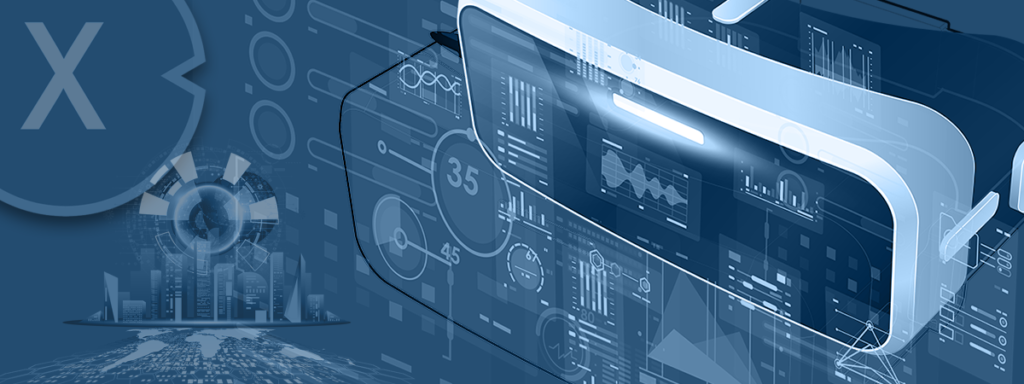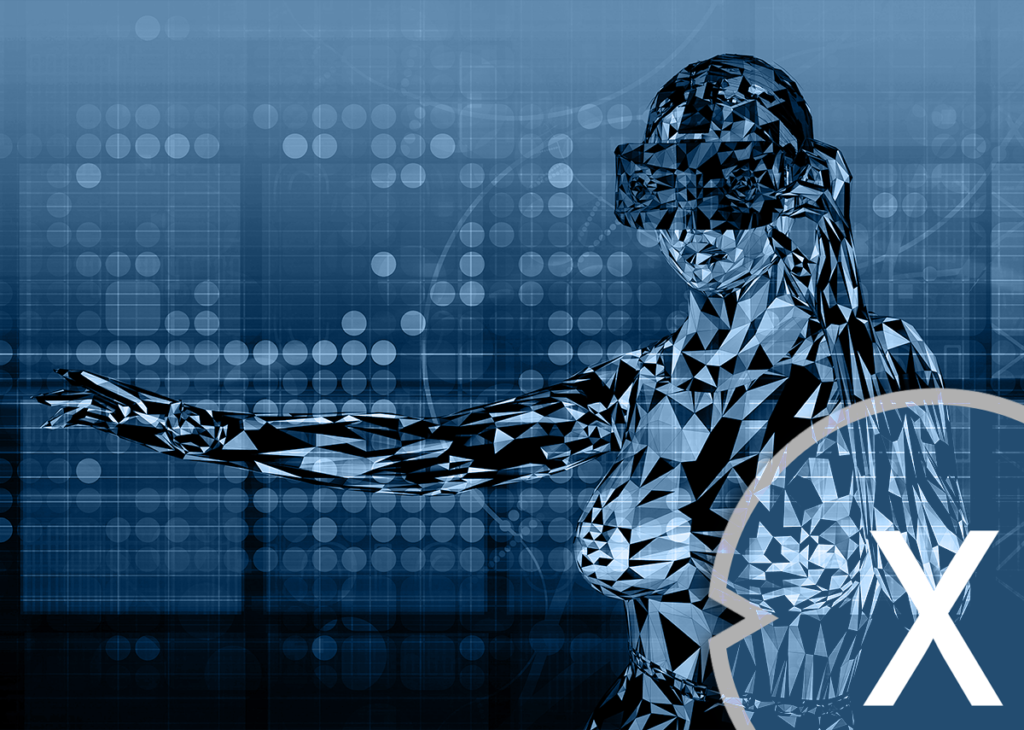'One of the Top Ten' Search: Industrial Metavere as well as extended/mixed reality companies and providers Advice
Language selection 📢
Published on: June 16, 2023 / update from: June 20, 2023 - Author: Konrad Wolfenstein

Industrial Metaverse and Mixed Reality companies and providers – Image: Xpert.Digital / Gorodenkoff|Shutterstock.com
Top Industrial Metaverse and Mixed Reality companies and providers
To identify top Industrial Metaverse and Mixed Reality companies and providers, there are a few criteria you can consider.
Experience and expertise
Pay attention to how long the company has been working in the Industrial Metaverse and Mixed Reality space. Companies with many years of experience often have the knowledge and expertise to offer high-quality solutions.
References and case studies
Check out the company’s references and case studies. Which projects have you already implemented and which customers have you worked for? Reviews and experiences from existing customers can also provide useful information.
Technological know-how
Make sure the company has deep technological expertise, especially in mixed reality. They should be familiar with the latest technologies and platforms and be able to develop tailored solutions for your specific needs.
Industry-specific solutions
Check whether the company offers industry-specific solutions and applications that are specifically tailored to the needs of the industry. A company that specializes in Industrial Metaverse and Mixed Reality in your specific area can provide valuable expertise and tailored solutions.
Team competence
Find out about the company's team. Check whether they have a multidisciplinary team with expertise in augmented reality (AR), virtual reality (VR), 3D modeling, software development, and UX design. A qualified team can influence the quality and success of the solutions.
Partnerships and networks
Check whether the company has strong partnerships or networks with other companies, technology providers or research institutions. Collaboration and partnerships can indicate strong positioning in the market and access to the latest innovations.
Customer support and service
Pay attention to the customer support and service the company offers. A reliable provider will help you implement and maintain the solutions and provide good customer service.
Scalability and flexibility
Ask about the scalability of the company's solutions and whether they are flexible enough to adapt to your future needs. The ability to adapt solutions to different company sizes and needs is important.
Innovation and research
Pay attention to whether the company prioritizes innovation and research. Companies that continually explore new technologies and approaches and invest in research and development are often leaders in their field.
Costs and budget
Consider costs and your budget when choosing a company. Compare the pricing structures of different providers and check whether they are in line with the expected services and benefits.
➡️ It is advisable to evaluate several companies, get quotes and check references before making a final decision. Thorough research and evaluation of potential vendors can ensure you are working with a top-notch Industrial Metaverse and Mixed Reality company.
➡️ As an expert with many years of experience in the field of extended reality, Xpert.Digital you in this future-oriented technology!
The agency online metaverse configurator
For media professionals, 3D artists, online, media and advertising agencies and other service providers: Take advantage of the opportunity to offer your customers their own metaverse by drawing on the expertise of Xpert.Digital and its partners. In addition, you can integrate our Metaverse configurator into your service offering as a white label solution.
More about it here:
Is the metaverse or metaverse more than virtual reality?
Yes, the metaverse goes beyond virtual reality (VR). Although VR may be an important part of the metaverse, the metaverse encompasses a broader conception of comprehensive, networked virtual reality.
The Metaverse is defined as an expanded virtual world inhabited and explored by humans. It is a digital ecosystem consisting of different virtual environments, platforms and content that are connected to each other. In the Metaverse, users can not only interact with computer-generated environments, but also communicate and cooperate with other users.
While VR places users in an immersive virtual environment, the Metaverse goes beyond that, allowing users to move in a persistent, connected space and interact with other users in real time. The Metaverse can include various technologies such as VR, Augmented Reality (AR), Mixed Reality (MR), Blockchain, Artificial Intelligence (AI), and more.
The Metaverse offers potential for diverse applications and uses beyond entertainment and gaming. It can serve as a platform for social interactions, virtual meetings, education, commerce, virtual travel, creative expression and much more. It strives to create a rich and immersive digital experience that complements and augments real life.
➡️ It is important to note that the concept of the metaverse is still evolving and various visions and interpretations exist. There is currently no uniform definition or standardized implementation of the metaverse. In the coming years, further developments and innovations are expected to advance the concept of the metaverse, making it an even more diverse and inclusive digital space.
➡️ Find out more here: Augmented & Extended Industrial Metaverse
10 examples of using Industrial Metaverse
The Industrial Metaverse has the potential to transform and improve various areas of industrial applications. Here are 10 examples of using the Industrial Metaverse:
Virtual product development
Companies can use the Industrial Metaverse to create virtual prototypes and simulations of products, resulting in accelerated product development and more efficient design processes.
Factory planning and optimization
Using the Industrial Metaverse, companies can create virtual factories to plan production lines, optimize operations and identify bottlenecks before making physical investments.
Training and continuing education
The Industrial Metaverse enables immersive and interactive training for employees by creating virtual training environments. Employees can simulate real-world scenarios and learn practical skills.
Maintenance and repair
By using augmented reality (AR), technicians can use the Industrial Metaverse to receive detailed instructions and information directly on site to carry out maintenance and repair work more efficiently and precisely.
Supply chain management
The Industrial Metaverse enables companies to have better visibility and monitoring along the entire supply chain. Real-time data allows bottlenecks to be identified, deliveries to be tracked and risks to be better assessed.
Quality control
Companies can use the Industrial Metaverse to improve quality assurance processes. With the help of virtual inspections and sensor integration, errors can be identified and corrected at an early stage.
Virtual collaboration
The Industrial Metaverse enables teams to collaborate across geographic boundaries. Employees can interact in virtual spaces, exchange ideas and work together on projects.
Internet of Things (IoT) integration
The Industrial Metaverse can collect and analyze IoT data in real time. This enables data-driven decisions and increases the efficiency of industrial processes.
Remote inspection and remote monitoring
The Industrial Metaverse allows experts to conduct inspections and monitoring remotely. This saves travel costs and enables quick response times if problems arise.
Production visualization
Companies can use the Industrial Metaverse to visualize real-time data about production progress, machine performance and other relevant metrics. This allows them to increase productivity and identify bottlenecks.
➡️ These examples show how the Industrial Metaverse can help optimize industrial processes, reduce costs, increase efficiency and improve collaboration. However, there are many more use cases and ways in which the Industrial Metaverse can transform industry.
10 examples of the use of a metaverse in the business metaverse
The Business Metaverse offers numerous opportunities for companies to improve business processes and open up new business opportunities. Here are 10 examples of using a metaverse in the business metaverse:
Virtual conferences and trade fairs
Companies can host virtual conferences and trade shows in the Business Metaverse to engage global participants, reduce costs, and provide access to high-quality networking opportunities.
Virtual offices and workspaces
Companies can set up virtual offices and workspaces in the Metaverse to provide remote teams with an immersive and collaborative work environment.
Product presentations and demos
The Business Metaverse enables interactive product presentations and demos where customers can experience products in a virtual environment without being physically present.
Virtual training and education
Companies can train and train employees virtually using the Business Metaverse. Through immersive experiences, complex tasks can be better taught and learned.
Virtual sales and customer service teams
Companies can create virtual sales and customer service teams in the Metaverse to serve customers, make sales calls, and offer support.
Market research and focus groups
The Business Metaverse allows companies to conduct virtual market research studies and focus groups to collect customer feedback and opinions and test new products and services.
Virtual collaboration and project management
The Business Metaverse enables teams to collaborate in virtual spaces, share ideas, plan projects and track progress.
Virtual recruiting and interviews
Companies can host virtual recruiting events and conduct interviews in the metaverse to identify and hire potential candidates more efficiently.
E-commerce and virtual stores
The Business Metaverse offers companies the opportunity to set up virtual stores and use e-commerce platforms to offer products and services in a virtual environment.
Collaboration with external partners and suppliers
Companies can use the Business Metaverse to collaborate with external partners, suppliers and contractors, share data and work together on projects.
➡️ These examples illustrate how the Business Metaverse can help companies expand their business operations, improve collaboration, achieve efficiencies, and create new opportunities for customer interactions. The use cases in the Business Metaverse are diverse and offer companies the opportunity to develop innovative solutions and position themselves successfully in the digital world.
10 examples of the use of a metaverse in the area of e-commerce metaverse
The e-commerce metaverse offers exciting opportunities for online retailers to expand their sales activities and create a unique shopping experience for customers. Here are 10 examples of using a metaverse in the area of e-commerce metaverse:
Virtual shops
Businesses can create virtual stores in the eCommerce Metaverse where customers can browse, select and purchase products virtually.
Virtual fittings
Customers can virtually try on clothing, shoes and accessories using avatar technologies and augmented reality (AR) to check fit and appearance before purchasing.
Interactive product presentations
Businesses can create interactive product presentations in the eCommerce Metaverse that provide customers with an immersive experience, allowing them to see, explore, and understand products in action.
Virtual trade fairs and pop-up shops
Companies can host virtual trade shows and temporary pop-up shops in the Metaverse to showcase their products to a wide audience and offer special offers.
Personalized shopping experiences
The e-commerce metaverse enables personalized shopping experiences where customers receive tailored recommendations and offers based on their preferences and purchase history.
Social shopping
Customers can interact with friends and other buyers in the e-commerce metaverse, share experiences, exchange opinions and shop together.
Virtual customer support
Businesses can offer virtual customer care services in the e-commerce metaverse, where customers can ask questions, receive assistance, and receive personalized advice from virtual assistants or employees.
Live events and product launches
Companies can host live events and product launches in the eCommerce Metaverse, where customers have the opportunity to receive exclusive offers and interact directly with brand ambassadors or influencers.
Gamification and rewards
By integrating gamification elements and reward systems, companies can motivate customers to actively interact in the e-commerce metaverse, collect points and receive exclusive benefits.
Virtual payments and currencies
In the e-commerce metaverse, virtual payment systems and cryptocurrencies can be implemented to enable secure and seamless transactions for the purchase of virtual and physical products.
➡️ These examples show how the eCommerce Metaverse can revolutionize online shopping by creating an interactive, immersive and social shopping experience. By leveraging the possibilities of the metaverse, companies can improve customer loyalty, reach new target groups and develop innovative sales strategies.
Consulting, planning and implementation of Augmented Reality, WebAR and Industrial | B2B | Business Metaverse (Metaverse)
Xpert.Plus is a project from Xpert.Digital. We have many years of experience in supporting and advising on (Extended) Augmented Reality and in warehouse optimization , which we bundle in a large network under Xpert.Plus .
I would be happy to serve as your personal advisor.
You can contact me by filling out the contact form below or simply call me on +49 89 89 674 804 (Munich) .
I'm looking forward to our joint project.
Xpert.Digital – Konrad Wolfenstein
Xpert.Digital is a hub for industry with a focus on digitalization, mechanical engineering, logistics/intralogistics and photovoltaics.
With our 360° business development solution, we support well-known companies from new business to after sales.
Market intelligence, smarketing, marketing automation, content development, PR, mail campaigns, personalized social media and lead nurturing are part of our digital tools.
You can find out more at: www.xpert.digital – www.xpert.solar – www.xpert.plus


























